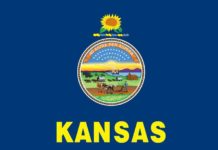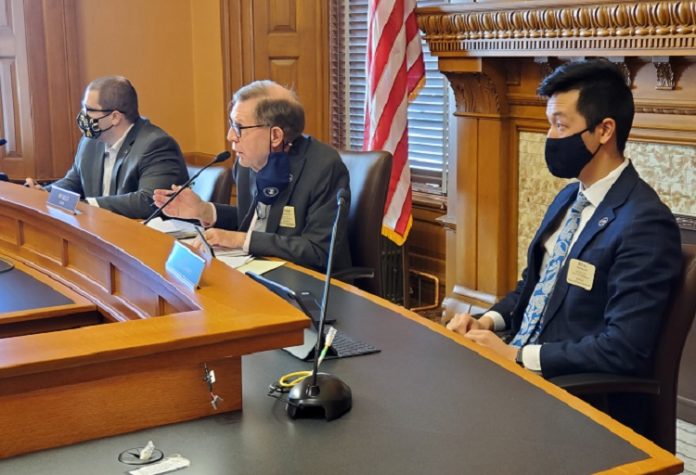(Updated to reflect passage of the bill)
The Kansas Legislature took less than a day Wednesday to pass legislation softening the financial blow that municipal-owned utilities suffered from soaring gas and electric prices during the recent cold snap that led to rolling blackouts to conserve energy.
The bill would make available $100 million in loans to city-owned utilities so they could absorb the burden of high energy costs during a prolonged period of subzero temperatures in early and mid-February.
The bill moved swiftly moved through the House and the Senate with only one lawmaker – Republican state Sen. Alicia Straub of Ellinwood – voting against the bill. The governor signed the bill Wedneday night.
Straub said she voted against the bill because she didn’t believe the ratepayers were responsible for the surge in gas and electric prices.
The low-interest loans, she said, in some way acknowledges the consumer was somehow at fault for the increasing gas and electric costs.
“I don’t feel my constituents – the consumers – should be responsible for this,” she said.
“My job is to protect the end consumer – the constituent – and I think there is a better way to do that,” Straub said.
From the outset Wednesday, lawmakers and lobbyists approached the issue with a great deal of gravity and urgency, noting that cities and their utility ratepayers were in financial peril unless the state took action quickly.
The plan approved by the Legislature will allow city-owned utilities to spread their costs out over a long time frame and spare their customers from getting hit all at one time with higher costs.
“We’re now seeing the first wave of bills coming into cities across this state who operate gas utilities or electric utilties who were faced with an incredible conundrum,” said Republican state Rep. Blaine Finch, who is part of the leadership team in the House.
“Do we not supply natural gas and heat in the middle of one of the coldest snaps that we’ve had in decades in this state?” he said.
“Or do we have to pay a king’s ransom for natural gas and electricity at these exorbitant prices?” he asked.
“They did what any of us would do. They took care of the people that they serve and they kept the lights on, they kept the heat going and they took care of people,” he said.
Now, those bills threaten the fiscal health of small cities across Kansas.
The League of Kansas Municipalities reported that city-owned utilities typcially paid between $2 and $30 per megawatt hour for electricity.
Electric prices skyrocketed to anwywhere from $4,500 to $54,000 per megwatt hour during the freeze.
Gas prices, meanwhile, shot up from their typical $2 to $4 per 1,000 cubic feet to $300 to $1,000 for the same measure.
The city of Cheney in Sedgwick County, for instance, is expected to be hit with a $1.7 million dollar gas bill for February. Its annual gas purchases run about $256,000.
The tiny city of Denison in Jackson County is expecting a gas bill of $241,000 for February, compared to about $4,100 for February of 2020.
The city of Goodland is anticipating an electric bill as high as $1.5 million for February, seven times the city’s monthly bill.
Amanda Stanley, general counsel for the League of Kansas Municipalities, said nothing less than 100 small communities across Kansas are counting on passage of the bill.
“In my time working in local government, I have never heard such desperation from people begging for a solution from someone, and you can give them that today,” Stanley said.
“If you don’t help them, no one will,” she said. “This isn’t just about cities. This is about the people in them who need your help.”
The bill would make available up to $100 million for the loan program that would come from idle funds held by the Pooled Money Investment Board, which invests money available from the general fund.
The loans, which would be administered by the state treasurer, would be limited to 10 years with an interest rate of 2 percentage points below the market rate.
Loans could only be made for extraordinary electric or natural gas costs incurred during the extreme winter weather event last month.
The loans also would not be considered bonded indebtedness as it relates to any state law that places limits on how much debt a municipality can take on.
If federal aid becomes available, that money would first have to go toward repaying the state loan.
The state treasurer would be required to submit an annual report to the governor and the Legislature identifying the cities that take out a loan.
The report would be required to provide the aggregate amount of moneys loaned and the amount of moneys still available for the program.
















